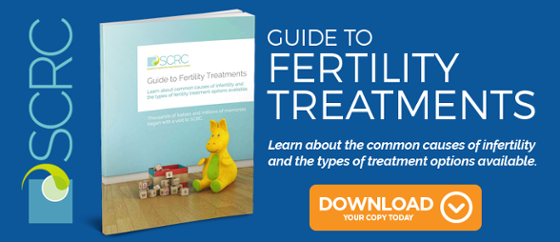
October is National Breast Cancer Awareness Month. Breast cancer is an issue that touches almost all of us at some point in our lives: we all know someone who has been affected.
At the beginning of this year, there were 3.1 million women living in the U.S. with a history of breast cancer, including women currently being treated and those who have finished treatment. In 2017, an estimated 252,710 new cases of invasive breast cancer were expected to be diagnosed in women in the United States, along with 63,410 new cases of non-invasive breast cancer. As many as 1 in 8 American women may be diagnosed with some form of breast cancer at some point in their lifetimes.
Although numbers like these can be sobering, there is plenty of reason for hope. The truth is that we are living in a time where new research and breakthroughs in treating breast cancer are constantly under development, and increased screening means that more and more cases are being caught early, when the cancer is at its most treatable. In large part, these advances are due to growing awareness after many successful campaigns. In honor of the brave patients who have walked their own journey with breast cancer and the intrepid researchers and doctors who continue to battle against this disease, today we are shining a spotlight on a subject which deserves our attention: breast cancer and fertility.
Breast cancer in premenopausal women
A breast cancer diagnosis is shocking at any time of life, but when you are young it comes with another layer of worry: how is this going to affect my chances of having a baby later in life? Breast cancer is relatively rare in young women. If you are diagnosed with breast cancer during your childbearing years, finding information on how it could affect your ability to conceive after treatment can be difficult. Less than 5% of breast cancer cases are diagnosed in women under 40, so issues of fertility for breast cancer survivors don’t tend to receive as much focus as they might otherwise. Another complicating factor is that conducting studies about breast cancer and fertility is a challenge. Each woman’s situation is unique, and identifying a cohort of women with similar cancer status and fertility outcomes for randomized clinical trials isn’t easy. As a result, research studies on this topic have generally been limited to quite small groups of women.
Even the limited information that is available can be difficult to come by. Recent research has shown that oncologists rarely offer their patients sufficient information about fertility before treatment begins. Things often need to move quickly after diagnosis, and fertility issues can easily fall by the wayside. Planning for your future after breast cancer, however, is an empowering way to take back some control at a time when you may be feeling helpless in the face of a frightening diagnosis. When you are fully informed about your options, you can make decisions for yourself and your fertility with the help of a team of experts on your side.
Breast cancer treatment and fertility
Common breast cancer treatments can impact your fertility in several different ways. Knowing the risks and the fertility preservation options open to you can help you navigate conversations with your doctors about how you want to approach both breast cancer treatment and fertility treatment.
Chemotherapy
Chemotherapy poses a variety of risks to your fertility, particularly regarding the health of your ovaries and eggs. We have written an in-depth post on the subject of getting pregnant after chemotherapy which can help you understand the challenges of chemotherapy and your options for preserving your fertility.
Radiation
Generally, radiation therapy for breast cancer does not harm your fertility. The radiation is concentrated on the breast, and the rest of your body, including your abdomen and pelvis, will be shielded during treatment. If you are already planning IVF, however, you may wish to undergo your cycle and egg retrieval procedure before treatment, to ensure that the tiny scatter of radiation from treatment does not affect the immature follicles in your ovaries (although this is a very unlikely risk.) You will want to consult closely with both your oncologist and fertility expert about the timing of your treatment.
Hormonal therapy
Certain types of breast cancer (hormone-receptor-positive breast cancers) respond well to hormonal therapy, which is used to “starve” a tumor of the estrogen which is making it grow. These therapies can cause tumors to stop growing or even shrink. They work by lowering the amount of estrogen in the body or blocking its action on breast cancer cells.
There are currently three hormonal therapy medicines approved for treating premenopausal women:
- Tamoxifen
- Elista (chemical name: raloxifene)
- Fares ton (chemical name: toremifene)
Because estrogen plays so many important roles in women’s reproductive cycles, any of these medications can impact your fertility. While you are on the hormonal therapy medications, your periods may become irregular or stop altogether. Your ovaries may stop producing eggs, which means you will stop ovulating. Once you stop the medication, it is quite likely that you will start menstruating again and your fertility will return, but this is not true for all women. Additionally, the length of time you are on these medications can be a factor: some patients may need to be on hormonal therapy for five to ten years, which represents a substantial portion of your fertile years. You will need to stay on a non-hormonal birth control (such as a copper IUD or barrier method) while taking hormonal therapy because if you do become pregnant while on this medication, the fetus will be at risk. In some women, using a medication like tamoxifen may also induce the onset of menopause several years earlier, further shortening the reproductive window. If you would like to learn more, breastcancer.org has a comprehensive resource on hormonal therapies for breast cancer.
Ovarian removal or medical shutdown
As mentioned above, hormone-receptor-positive breast cancers grow in response to the estrogen naturally present in a woman’s body. For premenopausal women with very high risk of breast cancer or breast cancer recurrence of this type, removing or shutting down the ovaries completely is an aggressive but effective form of treatment. You are considered “high risk” if you've tested positive for an abnormal BRCA1 or BRCA2 gene, or if you have a strong family history of breast or ovarian cancer. Removing the ovaries or stopping them from producing any estrogen, when performed in combination with a hormonal therapy like tamoxifen, can drastically reduce the chance of a breast cancer recurrence. It also has obvious implication for fertility.
Prophylactic or protective ovary removal, also known as prophylactic oophorectomy has the immediate side effect of starting permanent menopause.
A less drastic measure which may be used for premenopausal women is to shut down the ovaries temporarily with medications called gonadotropin-releasing hormone (GNRH) agonists. GNRH agonists work by sending a message to the brain to stop estrogen production in the ovaries.
Two of the most common ovarian shutdown medications are:
- Zoladex (chemical name: goserelin)
- Lupron (chemical name: leuprolide)
These medicines are administered as injections once a month or every few months. When the medications are stopped, ovarian function will begin again, although the amount of time it takes for the ovaries to recover can vary.
Fertility preservation for women with breast cancer
Freezing eggs before beginning cancer treatment is a good option for many patients. While there are no guarantees, it can open doors to pregnancy in the future, through IVF or gestational surrogacy. If you have a partner or are interested in using donor sperm, freezing embryos can offer an even higher chance of having a baby once you’ve recovered. Some women choose to freeze both eggs and embryos. Timing is important when it comes to preserving your fertility before you embark on treatment. Your oncologist and your fertility clinic can work together to try to find a schedule that prioritizes your health and well-being while you go through an egg-freezing cycle. Your recovery is the first priority, but in most cases it is possible to also look after your future fertility before the start of your cancer treatment.
The days and weeks after being diagnosed with breast cancer often go by in a blur of doctors’ appointments and big decisions, and adding the stress of fertility concerns on top of all of this can feel like too much. If you or someone you know is in this difficult place right now, know that there is assistance and support available to you. Talking to your oncologist and a fertility expert about your options is the most important thing you can do for your future fertility right now. There is hope for pregnancy after breast cancer, and we can help.
Share this on social media:





